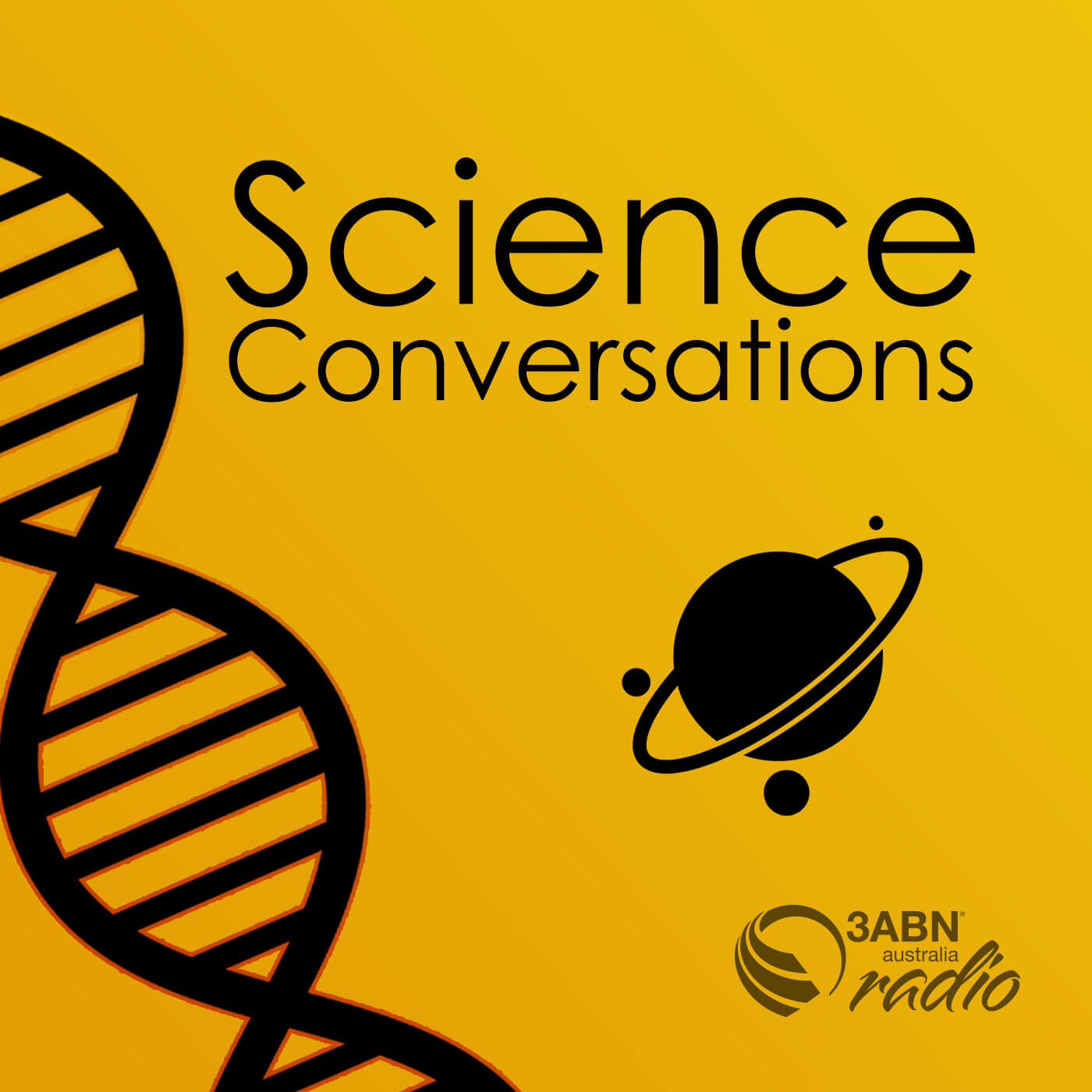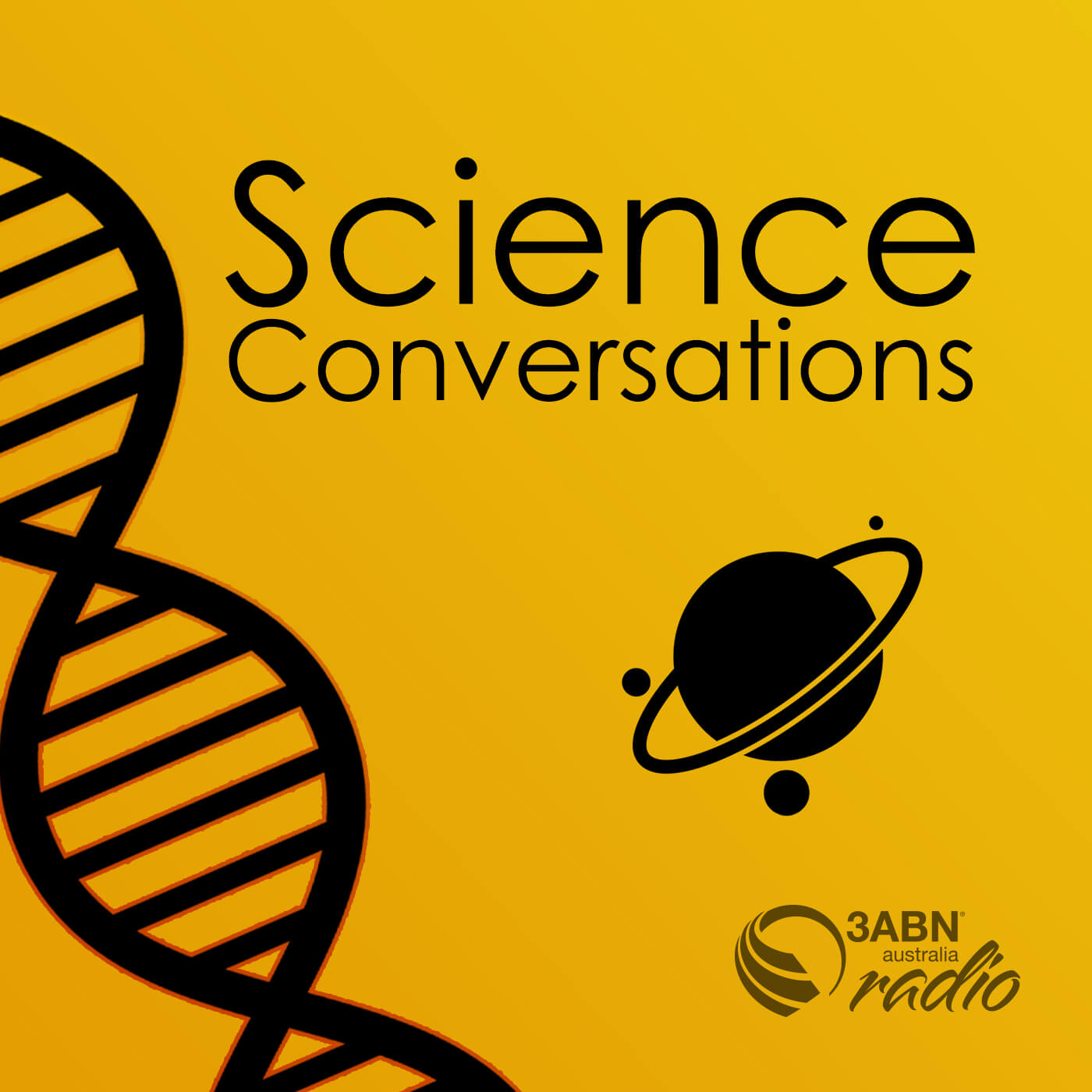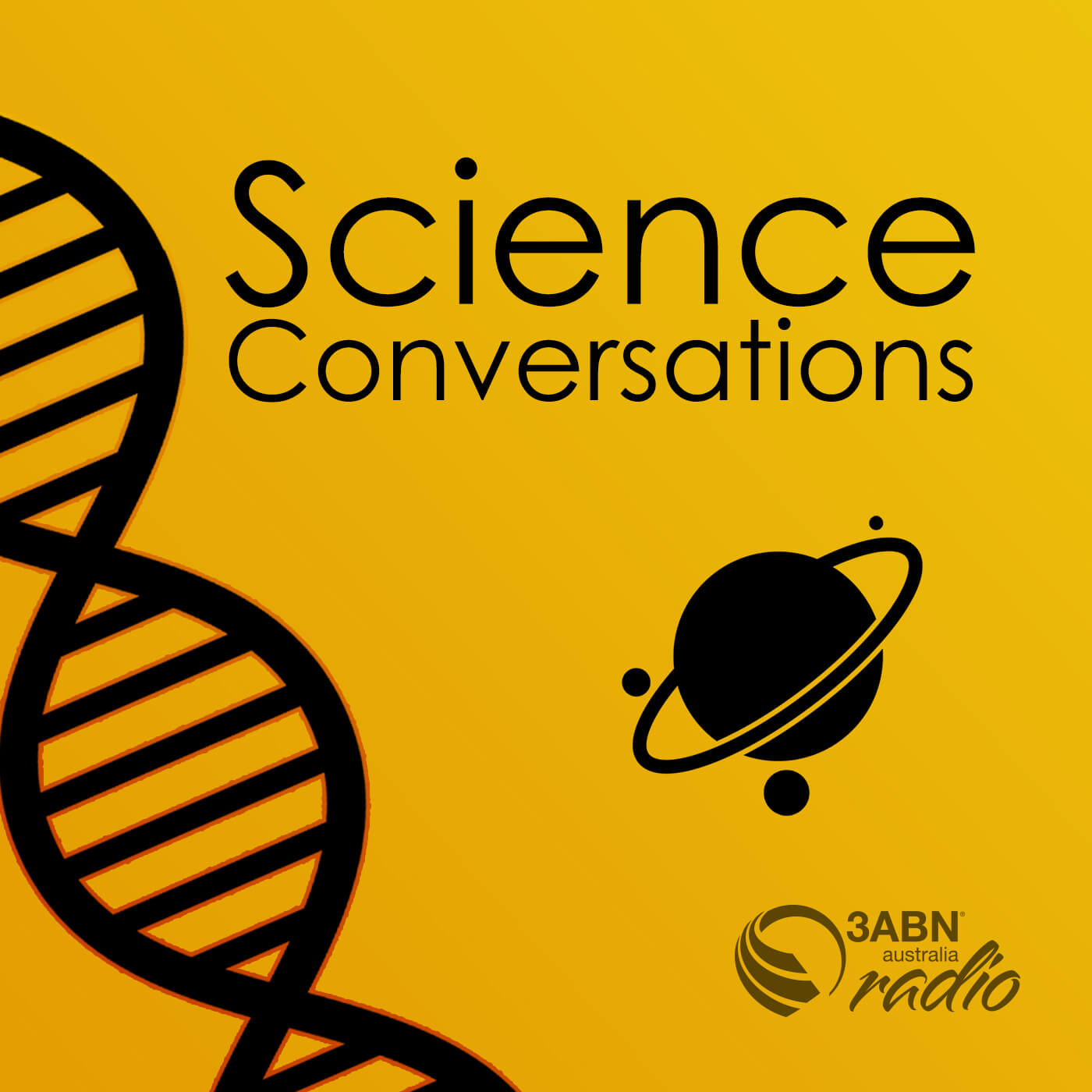Episode Transcript
SPEAKER A
Welcome to Science Conversations. I'm Kaysie Vokurka. Can living cells arise by chance? Joining me to discuss part three of this topic is Dr. John Ashton. Welcome to the programme, Dr. John.
SPEAKER B
Hi, Kaysie.
SPEAKER A
So we'll be referring once more to Dr. John Ashton's book, Evolution Impossible. We're looking at chapter three and we've been talking all about the complexity of a cell and how all of its components could form. And just hypothetically, say we have all the components, even though we've established in the last programme that it's impossible for that to form naturally. But say we already have them all, what does it take for a cell to be alive if it had all those components, could it happen that it would come alive if you had all of the essential parts?
SPEAKER B
Yeah. So this is a fascinating question that is often overlooked. So there's a lot of focus on trying to assemble all the bits and pieces in a cell and getting there. But one of the things is, of course, that we're alive because, or a cell is alive because of a whole lot of chemical reactions all taking place at the same time. Now, these chemical reactions produce what we call intermediate species, and these intermediate species then have to be produced at just the right weight to be the fuel for the next part of the chemical re. And one of the things is that we have to have a system set up so that we're continually producing all these intermediates, and these intermediates then are just at the right concentration to fuel the next reaction. So if they're not at the right concentration, the reaction might not go, or it might go too fast, which can get the next reaction out of order. It may go to completion before another process kicks in and this sort of thing. So everything has to be balanced. Now, the interesting thing is that if we look at, say, a simple E Coli cell, which we've studied in detail, say we killed that E Coli cell. Now, we could kill the cell by simply putting, say, a drop of toluene on the outer membrane of the cell that would disrupt the ATP synthesis for that cell. And so the cell would die. Right, so this is one of these chemical pathways would be dis. All the components of the cell are there. All the amino acids, fats, proteins, sugars, DNA, ribosome, it's all there, right? Everything is there, but we need to now start it up. Now, to start it up, what we would have to do Is generate about 600 intermediate compounds at just the right concentration and have them in place so that they stimulated about 600 different types of chemical reactions all in phase, all at just the right time to go. And this is. Yeah. And it all has to happen at once because if they're out of sequence, we've got this whole. What we have as a sort of situation where A reacts with B to produce C which reacts with D to produce E at just the right concentration to react with G to produce F which reacts and. And everything has to. And then it comes right back round again to we've got to producing A at just the right concentration to produce.
SPEAKER A
B to B. Cyclic success.
SPEAKER B
We've got all these cycles that are taking place that are responsible for life. A system being alive and not stopping. Once these reactions reach equilibrium, the cell is dead. And that's how organisms die. Function fails in a particular organism. An organ or something fails that is responsible for producing certain biochemicals for another part. And everything just shuts down one after the other. Tung. Tung. Tung. Tung. Tung. And we die. And when we look at the cellular level, of course it's the same thing. Once we interrupt these whole series of chemical reactions that are all just imbalanced so we're producing them at the right concentration. So you can remember, if you just take a very simple explanation that maybe you remember in high school where you added hydrochloric acid to zinc. So you start off, you've got zinc, you've got hydrochloric acid and they're reacting away and they eventually reach equilibrium when all the zinc has dissolved and produced zinc chloride and the hydrogen has evolved and gone away. If we want that reaction to start again, and usually we have an excess of hydrochloric acid, we've got to put more zinc in for that reaction to start again. It's not going to go backwards. And once that's happened, the process stops, we stop producing hydrogen. And we've got to imagine that we've got something like 600 of these reactions where we've got to keep on feeding in the hydrochloric acid, we've got to keep on feeding in the zinc all the time so that we're producing perhaps the hydrogen that, for example, if we use a mechanical system, the hydrogens need in a fuel cell somewhere, and the zinc chloride then is continually going to some other process. We've got to continuously have those feeds in. And again, we can have the situation. If we don't have the right conditions, the temperature is too high, the hydrogen could react too quickly and explode. All these sort of things can happen. So that's a very, very simple system. And again, we have other compounds like the enzymes that control the activation. So, for example, if we have a match, a match doesn't burst into flame due to activation energy that is required to take the components that are all there touching one another, but they don't burst into flame. But by rubbing the match on a rough surface, we provide heat energy that rays that provides then the activation energy for the reaction to occur.
SPEAKER A
So you were saying before how if the molecules that are reacting reach equilibrium, then essentially that's it, they die. So in other words, for a cell to be alive, there has to be this consistent state of non equilibrium. And what you were just explaining about the match suggests that you need energy to get that going, is that correct?
SPEAKER B
Yeah, well, we need fuel. Cells need fuel as well. And this fuel comes from reactions and particularly ATP synthase and so forth as part of the circular reaction. So again, you've got to have the continuous in of food. And one of the things, one of the fascinating things that we find when we look for example at E Coli, we know that it has amazing sensor systems where it can measure the concentration of nutrients in its environment. And then of course E. Coli, they have little flagella that are spinning around that propel them and they will directionally propel them towards the greater concentration. So what they're doing is they're actually analysing, doing chemical analysis of environment to actually move them towards the food source and direction. So they've actually got logic systems that control the direction of their little propeller, flagella things to propel them towards the higher concentration. And of course the logic system, that's another fascinating aspect that we haven't really talked about. And so similarly, for a simple cell, the first living organism to arise, you've got to have all these compounds in a state of just the right amount of the intermediates at just the right concentration, so that the reactions are proceeding at just the right rate, not too fast, not too slow. We have to produce that concentration for all the reactions that are required simultaneously at the same time. And then to maintain that reaction, we have to be able to get some sort of energy into the system to maintain it, usually by some metabolic process of some food that the organism is going to take up. And again, there has to be a way of activating that. So it's extremely complex to not only once you form the first cell, you've got to start it up, which is absolutely impossible. And that's why even in, with the best equipment in the laboratory, we can't revive a dead E Coli cell. And that's why nobody has been able to revive, really anything that has been dead. And the whole reason is because we have these intermediate states, once the reactions stop, the biochemical, they go to what we call equilibrium states. We then have to restore an unstable concentration state. We've got to put it to a disequilibrium state at just the right concentration. And to be doing that for hundreds of reactions simultaneously at the same time is absolutely impossible. We just can't organise it.
SPEAKER A
They control conditions, don't they?
SPEAKER B
Yeah.
SPEAKER A
How do you do that?
SPEAKER B
And then once we have that, the organism itself has to then somehow have an energy source coming in and the mechanisms to again change that energy source, because it's gonna be in a stable, inert form that now has to be activ. Into a form that the living cell can use.
SPEAKER A
So when we think about this, and we think about the probability of this all happening, like, I'm guessing there's been calculations done to try and assess that. Is there any more that you can share along those lines of. I mean, we're talking about it as being impossible, but what does that look like?
SPEAKER B
Well, yeah, the probability of all these reactions occurring and bears being able to. The probability is probably in the order of one in ten to a billion zeroes after it. That sort of magnitude. We're getting to the state where scientists now have to suggest, you know, the only possibility is that somehow, if there was an infinite number of universes and we happen to be in that universe where somehow this did occur. But the problem is that we know really, in realistic terms, that's impossible because that's just for one. This first organism, it might then die, be zapped with ultraviolet light and die.
SPEAKER A
Back to square one.
SPEAKER B
Back to square one.
SPEAKER A
How are we going to move on for evolution?
SPEAKER B
So these ones are the thing. Look, the bottom line is that we can say, and we need to think about the words we're using, it is absolutely impossible for a living cell to have formed by naturalistic processes anywhere in the unknown universe under the conditions that we know, under the laws of physics and chemistry that we know and understand today. And we've been researching, we've made a lot of advances in these areas in terms of understanding molecular structure, in terms of understanding chemical bonding, in understanding how chemical reactions occur, understanding the laws of physics, the laws of biology and so forth. We can say in absolute terms that a living cell cannot form the evidence that we are alive. The evidence of life on Earth requires a supernatural cause. It requires a cause outside the known laws of physics. And this is very, very important. That People understand this, that, and that's why the biblical picture of a creator God fits the evidence so well. Now a lot of people say oh well that's just the God of the gaps. But no, it's the only explanation we have. The explanation we have is that some non natural process, some supernatural process was responsible for life. Now when we look at the simple genetic codes, when we look at the structure of molecular machines such as ribosomes or Photosystem 2, which can use the sunlight to split water into hydrogen and hydrogen ions and oxygen and so forth, these amazing molecular machines that are living in living organisms, they all point to amazing design. And we know from our own experience, right? And this is all we can know. All we can know is from our own experience that it takes a mind to design things. And so again this fits the description of a non material supernatural mind that designed and set up everything. And this is how God describes himself. God describes himself as I am who I am and I'm a self existent one, I have always existed. And so again and this fits a supernatural because we run into a problem. What was there before anything was, you know, how come there is anything? We're here, we have evidence that we're here. And but the explanation that the Bible gives that an eternal always existing mind is responsible for making us to me is the most scientific and reasonable explanation and fits the data that we have from chemistry and physics that otherwise life is impossible.
SPEAKER A
Absolutely. And certainly from like even if you are not a believer in God as in the existence of it, purely from a logical reasoned point of view, looking at the data we have and the understanding of cells, like it's more probable that a supernatural being, e.g. God created something and got the starting point going than for it to arise just by the natural processes. So yeah, it makes a lot of sense from that perspective. Thank you so much for sharing about this topic Dr. Ashton. And it's been very interesting to unpack it a bit and really think through what it would take to have life arise by chance from non living material. So thank you so much. Next time we'll examine the question, can new organisms form from random mutations? So be sure to join us for that one.


